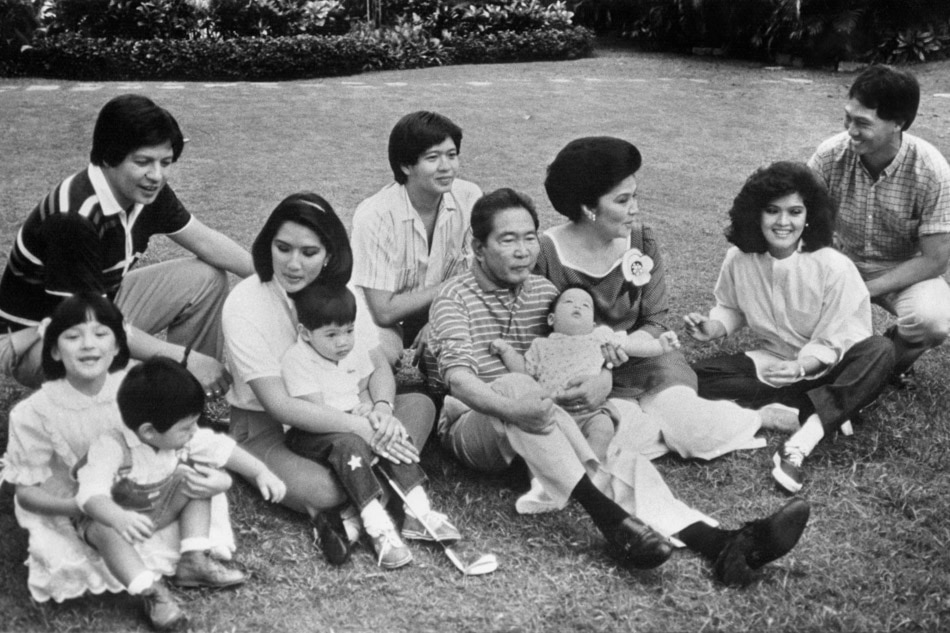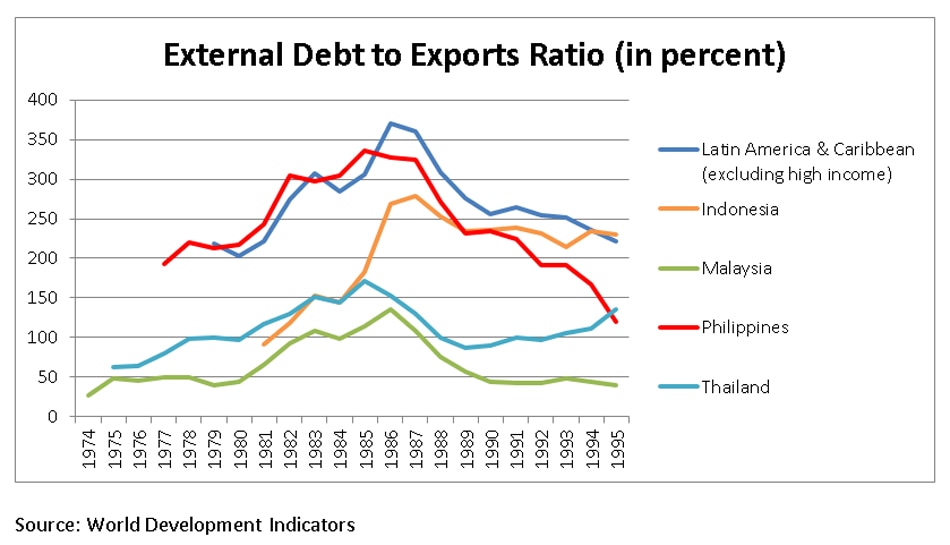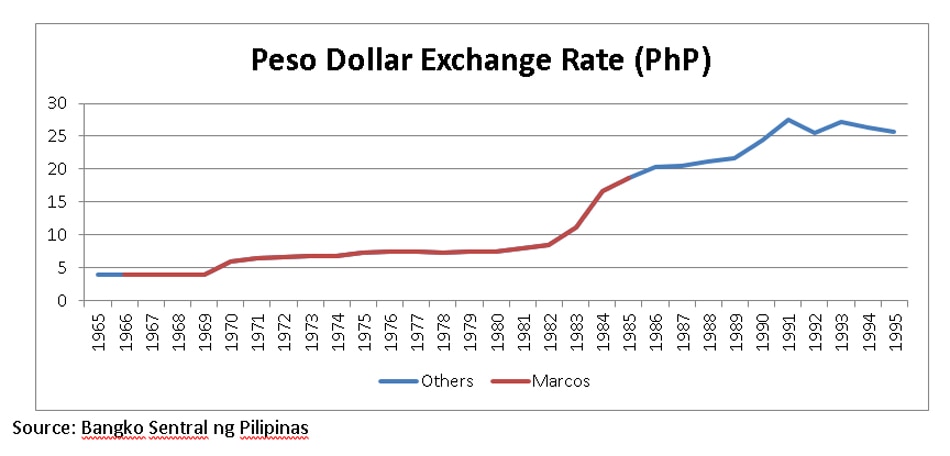Bato believes former president Marcos did many good things for PH | ABS-CBN
ADVERTISEMENT

Welcome, Kapamilya! We use cookies to improve your browsing experience. Continuing to use this site means you agree to our use of cookies. Tell me more!
Bato believes former president Marcos did many good things for PH
Bato believes former president Marcos did many good things for PH
ABS-CBN News
Published Oct 19, 2021 10:15 AM PHT
|
Updated Oct 19, 2021 12:32 PM PHT
Presidential aspirant Sen. Ronald "Bato" Dela Rosa on Tuesday said President Ferdinand Marcos did many good things for the country, adding the Philippines was "leading by all indicators" when the late dictator was ousted in 1986 despite economic data showing otherwise.
Presidential aspirant Sen. Ronald "Bato" Dela Rosa on Tuesday said President Ferdinand Marcos did many good things for the country, adding the Philippines was "leading by all indicators" when the late dictator was ousted in 1986 despite economic data showing otherwise.
Dela Rosa, 59, said he was old enough to have seen the effects of martial law in the country before the 1986 People Power Revolution ousted Marcos.
Dela Rosa, 59, said he was old enough to have seen the effects of martial law in the country before the 1986 People Power Revolution ousted Marcos.
Asked about moves to revise history to favor the Marcoses, Dela Rosa said talking about the late dictator's accomplishments should not be labeled as revisionism.
Asked about moves to revise history to favor the Marcoses, Dela Rosa said talking about the late dictator's accomplishments should not be labeled as revisionism.
When asked which parts of history are being "revised", he said: "Na si Pangulong Marcos ay napakawalang kwentang pangulo. Ang daming magandang nagawa niya sa ating bansa. Before siya umalis, we are leading by all indicators sa Southeast Asia."
When asked which parts of history are being "revised", he said: "Na si Pangulong Marcos ay napakawalang kwentang pangulo. Ang daming magandang nagawa niya sa ating bansa. Before siya umalis, we are leading by all indicators sa Southeast Asia."
ADVERTISEMENT
Key economic indicators during the Marcos years, however, show that the Philippine economy collapsed in the early 1980s.
Key economic indicators during the Marcos years, however, show that the Philippine economy collapsed in the early 1980s.
Gross domestic product (GDP) growth peaked right after Marcos’s declaration of Martial law in 1972, reaching nearly 9 percent in 1973 and 1976, partly driven by a commodity boom when the prices of major Philippine commodity exports like coconut and sugar went up.
Gross domestic product (GDP) growth peaked right after Marcos’s declaration of Martial law in 1972, reaching nearly 9 percent in 1973 and 1976, partly driven by a commodity boom when the prices of major Philippine commodity exports like coconut and sugar went up.
However, it was also under Marcos when the country hit the worst recession in history: a 7.3-percent contraction for 2 successive years in 1984 and 1985, as his grip on power waned.
However, it was also under Marcos when the country hit the worst recession in history: a 7.3-percent contraction for 2 successive years in 1984 and 1985, as his grip on power waned.
It was also during the Marcos years that the Philippine external debt doubled from $4.1 billion in 1975 to $8.2 billion over two years and later ballooned to $24.4 billion in 1982.
It was also during the Marcos years that the Philippine external debt doubled from $4.1 billion in 1975 to $8.2 billion over two years and later ballooned to $24.4 billion in 1982.
From 1978-1991, the country’s debt stood at more than 200 percent of exports, peaking in 1985 during the last full year of Marcos.
From 1978-1991, the country’s debt stood at more than 200 percent of exports, peaking in 1985 during the last full year of Marcos.
ADVERTISEMENT
The Philippine peso also dropped from P8.54 to the dollar in 1982 to P18.61 to the dollar in 1985.
The Philippine peso also dropped from P8.54 to the dollar in 1982 to P18.61 to the dollar in 1985.
MARCOS ILL-GOTTEN WEALTH
In the interview, Dela Rosa said the Marcoses should return all ill-gotten wealth but questioned why the process of recovering the wealth has taken so long.
In the interview, Dela Rosa said the Marcoses should return all ill-gotten wealth but questioned why the process of recovering the wealth has taken so long.
"Kung talagang pera yan ng taumbayan, ibalik natin 'yan. Kailangan ibalik natin 'yan. Pero ako ha, bakit tayo humantong sa...
1986 pa pala yan, hindi pa pala tapos 'yan. Ganun pala katagal, haba haba na," he said.
"Kung talagang pera yan ng taumbayan, ibalik natin 'yan. Kailangan ibalik natin 'yan. Pero ako ha, bakit tayo humantong sa...
1986 pa pala yan, hindi pa pala tapos 'yan. Ganun pala katagal, haba haba na," he said.
He said presidential aspirant Ferdinand "Bongbong" Marcos Jr. need not apologize for his father's massive corruption while in power. Asked if he would apologize if his own father did something wrong, he said: "Mag apologize ako. Pero I don't want to ascribe my own standards to Bongbong Marcos. Fair lang tayo ng treatment."
He said presidential aspirant Ferdinand "Bongbong" Marcos Jr. need not apologize for his father's massive corruption while in power. Asked if he would apologize if his own father did something wrong, he said: "Mag apologize ako. Pero I don't want to ascribe my own standards to Bongbong Marcos. Fair lang tayo ng treatment."
A World Bank-United Nations Office on Drugs and Crime’s Stolen Asset Recovery report earlier said the Marcoses amassed an estimated $5 to $10 billion, or more than P500 billion, in ill-gotten wealth.
A World Bank-United Nations Office on Drugs and Crime’s Stolen Asset Recovery report earlier said the Marcoses amassed an estimated $5 to $10 billion, or more than P500 billion, in ill-gotten wealth.
ADVERTISEMENT
The Presidential Commission on Good Government, the agency tasked with recovering billions of dollars plundered by Marcos and his allies, had recovered a total of P170 billion in the past 30 years.
The Presidential Commission on Good Government, the agency tasked with recovering billions of dollars plundered by Marcos and his allies, had recovered a total of P170 billion in the past 30 years.
A coalition of martial law victims earlier criticized broadcaster Tulfo for "harping on the same script of denialism that whitewashes and absolves the Marcoses of their injustices and crimes against the Filipino people."
A coalition of martial law victims earlier criticized broadcaster Tulfo for "harping on the same script of denialism that whitewashes and absolves the Marcoses of their injustices and crimes against the Filipino people."
"Marcos Jr. was not an idle, innocent bystander during the time his father was plundering the nation’s coffers or jailing and torturing political dissidents," the Campaign Against the Return of the Marcoses and Martial Law said in a statement.
"Marcos Jr. was not an idle, innocent bystander during the time his father was plundering the nation’s coffers or jailing and torturing political dissidents," the Campaign Against the Return of the Marcoses and Martial Law said in a statement.
"He benefited from and enabled the sins of his father as much as he had sins of his own, especially when Marcos Jr. held key government positions during his father’s dictatorship," the group added.
"He benefited from and enabled the sins of his father as much as he had sins of his own, especially when Marcos Jr. held key government positions during his father’s dictatorship," the group added.
Carmma noted that Marcos Jr. was the vice governor of Ilocos Norte from 1980 until 1983. He was later appointed as chairman of the board of the Philippine Communications Satellite Corporation in 1985.
Carmma noted that Marcos Jr. was the vice governor of Ilocos Norte from 1980 until 1983. He was later appointed as chairman of the board of the Philippine Communications Satellite Corporation in 1985.
ADVERTISEMENT
Carmma cited the following rulings showing corruption and human rights abuses under the Marcos regime:
Carmma cited the following rulings showing corruption and human rights abuses under the Marcos regime:
- On Sept. 22, 1992, the United States Federal Court found the late dictator guilty of human rights violations, with the Marcos estate liable to compensate the victims.
- On Nov. 9, 2018, the Sandiganbayan found Imelda Marcos guilty of 7 counts of graft for opening and maintaining illegal Swiss foundations, where Marcos Jr. and his siblings were named as beneficiaries.
- On Sept. 28, 2021, the Sandiganbayan ruled that bank deposits made by the late dictator at the Traders Royal Bank are ill-gotten wealth that should be returned to the government.
- On Sept. 22, 1992, the United States Federal Court found the late dictator guilty of human rights violations, with the Marcos estate liable to compensate the victims.
- On Nov. 9, 2018, the Sandiganbayan found Imelda Marcos guilty of 7 counts of graft for opening and maintaining illegal Swiss foundations, where Marcos Jr. and his siblings were named as beneficiaries.
- On Sept. 28, 2021, the Sandiganbayan ruled that bank deposits made by the late dictator at the Traders Royal Bank are ill-gotten wealth that should be returned to the government.
"To this day, the Marcoses—including Marcos Jr.—have never served a day in jail for these crimes. Their loot from decades of pocketing billions of public funds has yet to be returned," the group sai
"To this day, the Marcoses—including Marcos Jr.—have never served a day in jail for these crimes. Their loot from decades of pocketing billions of public funds has yet to be returned," the group sai
Read More:
bato
bato dela rosa
halalan 2022
halalan2022
marcos
bongbong marcos
historical revisionism
martial law
ferdinand marcos
bongbong
ADVERTISEMENT
ADVERTISEMENT





